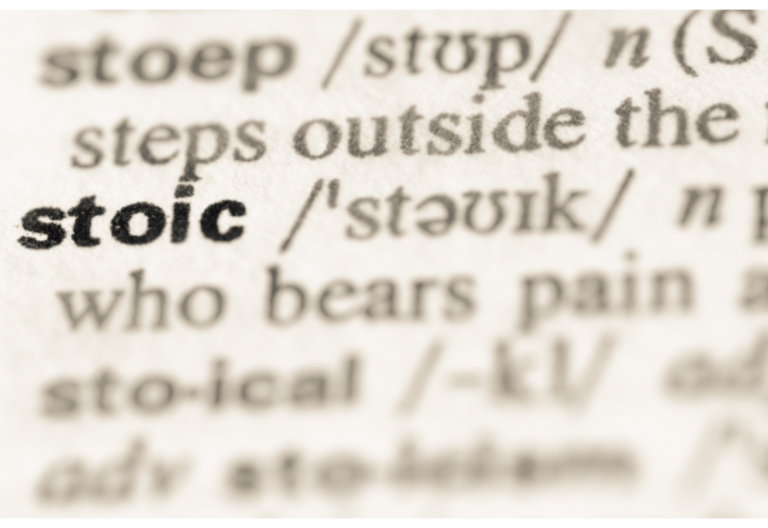Why people are becoming more selfish
One of the reasons why people are becoming more selfish (besides alienation through social media, overpacing, etc.) is that hardly anyone sees a benefit in helping others.
"What's in it for me?"
This question - whether asked consciously or unconsciously - is often enough reason for the decision not to help someone, not to support someone. The problem with this, however, is that we usually fundamentally misjudge the situation.
Let's say someone asks us if we can help them move house. We decline. Unfortunately we don't have time next Saturday, we reply, although the real reason is that we had to manage our last move ourselves because nobody had time for us.
But what we don't consider is the following. If we were to help with the move, we would definitely benefit. For one thing, there would be the social contact with other people. Typically, doing physical work together is a good way to grow closer. And secondly, most removals are great fun, at least in my experience.
Of course, this is just a single example, but in principle it can be applied to the majority of situations in which we are asked for help or we see that someone could use help.
So the problem is not that we have no benefits, but that we have somehow forgotten how to see them.
I believe that a shift in our focus is responsible for this. For some time now, we have been going through a development that runs counter to technological progress. The more it progresses, the more social aspects such as solidarity seem to recede into the background.
Instead, consumerism and interpersonal passivity are taking over.
Lukas has already written an article in which he explains Why people become more self-centered with increasing prosperitywhich is highly recommended at this point.
We have become more and more conditioned to instant gratification (meaning "instant pacification") can be expected. Here, too, technical progress plays a major role.
Humans have always been more interested in prioritizing the now over the later. This is simply human nature and makes perfect sense, as the now is guaranteed and the future is uncertain. Nevertheless, the whole thing has gone to extremes over the last two to three decades. I know this from myself. As a child, it was completely normal for me not to get things straight away. There was a months-long wait for the much-anticipated toys from the wish list that went to Santa early on. And it was also taken for granted that not all of them would end up under the tree.
Later on, my expectations of getting things changed completely. Instant availability through overnight deliveries and the ever-widening acceptance of credit cards and consumer credit gradually eliminated the patience and willingness to save up for something. All of this often leads to an overvaluation of things that are immediately available and more obvious. Anything that is further in the future or uncertain gets the short end of the stick. For example, the possible prospect of reciprocating a favor, such as help with moving house, is given less weight than a cozy Saturday in front of the TV.
Quite apart from the fact that physical exercise would be important when moving house and that a day in front of the television reinforces our already sedentary lifestyle, there is another problem.
The lack of being used can easily lead to a certain dreariness. People want to be needed. Otherwise we lack meaning in our lives, because people have always strived to give meaning to their existence and helping and working with others is known to be an extremely good thing.
But catalysts such as the emergence of social media and the speed of its adaptation are also decisive for the observable trend of losing sight of all that is worthwhile in social favors.
Thanks to the new media, indirect communication has reached proportions that would have been unimaginable not so long ago. The name Instagram, for example, has become techtarget.com is a fusion of the words "instant camera" and "telegram" and perfectly reflects the spirit of the times. We can present and communicate ourselves as we wish. And we can do so independently of time and place. Admittedly, this is not necessarily a new situation, as the telephone and, for thousands of years, the letter have already created this distanced form of communication. But today, a much larger amount of communication is outsourced to this form. Whereas in the past only the most important matters were dealt with by letter and telephone, today everyday exchanges are increasingly taking place indirectly. I don't want to demonize the internet and its achievements, and the same applies to social media. If we manage to use it carefully, we have extremely powerful new tools. I would even go so far as to say that we have gained extensions of ourselves through them and can therefore be extremely enriching.
The best approach I know for the desired mindfulness is reflection and renunciation. We should always remain aware that social interaction should not take place entirely via our electronic companions. To achieve this, we should deliberately limit our electronic use - and not only that. We should also limit what we share with our social circle. In a conversation with Lukas, he pointed out that it is not always worth sharing experiences directly with our fellow human beings via voice message, etc. For example, we can save the good news of a pay rise for the evening when we are at home. That way, we can tell our partner first-hand, really absorb the reaction and enjoy the moment. genuine with each other. If we outsource it electronically instead, just to communicate immediately and instantly, we rob the moment of its fullness and authenticity, and face-to-face conversations become flat and increasingly empty. It is therefore worthwhile to refrain from using modern means of communication, including social media.
But you can also extend renunciation to other areas. Today, for example, I consciously try to do without things that I don't need in order to counteract this social conditioning. I also always make sure to pursue sufficiently lengthy projects that cannot be completed quickly, but require diligence and perseverance. Examples here are fitness, cooking or writing books.
This brings us back to instant gratification. Getting everything immediately and straight away gets us nowhere in our development. Virtue, like patience and consistency or perseverance. Kant said, as Aristotle once did, that it is important to work on one's own virtue, as this brings bliss.
Let's train ourselves to see things that are not so obvious. Like the benefits of helping with the move.
"The meaning and purpose of dancing is the dance. Like music also, it is fulfilled in every moment of its course. You do not play a sonata in order to reach the final chord, and if the meaning of things were simply in ends, composers would write nothing but finales."
ALAN WATTS
"The meaning and purpose of dance is dance. As in music, it is fulfilled in every moment of its course. One does not play a sonata in order to reach the final chord, and if the meaning of things lay only in the end, composers would write nothing but final chords."
It is therefore easy to understand why we often see no benefit in offering our help. The only stupid thing is that we usually simply overlook the benefit, which is definitely there in most cases. Our behavior is therefore not only bad from a social but also from a selfish point of view. Our inability to see good and selfish reasons for more solidarity harms us.
Let's go back to the example of the move, where we justify our decision by saying that nobody helped us either. That's thinking backwards. We shouldn't be surprised if no favors are done for us if we ourselves don't offer our help or provide help when asked. Someone has to make a start. Why not ourselves? The reward is there. Whether we see it or not.
If you would like to read more about this topic, you can find a suitable article by Lukas here.
And if you think that we should not always act selfishly, but that altruism and charity should also motivate a healthy proportion of our actions - completely without self-interest, then I absolutely agree with you. But that's a topic for another time.
Let us know your thoughts in the comments.







